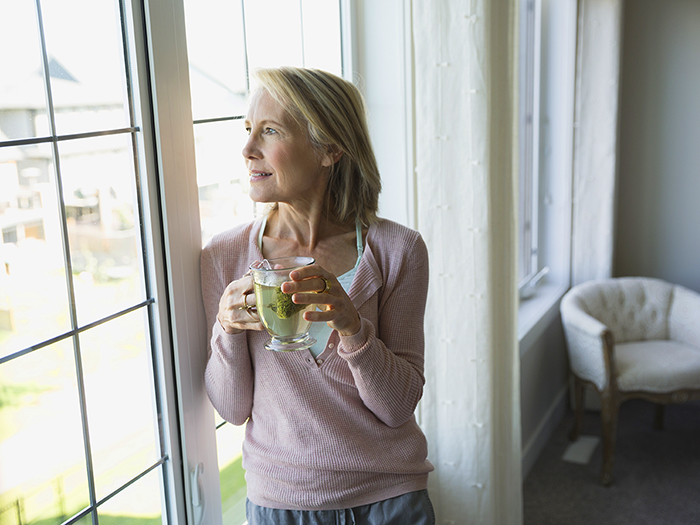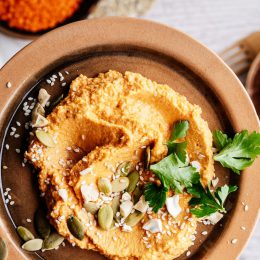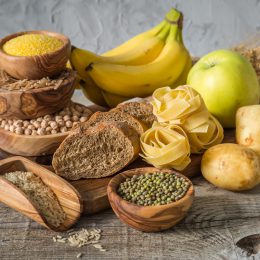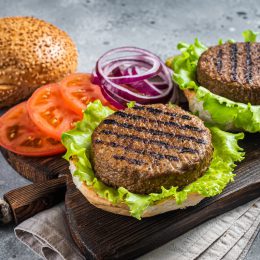Are Detox Diets Good for You?
Detoxes and cleanses promise quick weight loss, but do they work—and are they safe? Here’s what older adults should know.

Down a few healthy drinks, and rid yourself of what ails you: a few extra pounds, an illness, that “blah” feeling. That’s the promise of popular detox diets.
But are these diets too good to be true? In most cases, yes.
Generally, a detox diet is defined as “a temporary eating style designed to rid the body of toxins,” says Isabel Maples, R.D.N., a spokesperson for the Academy of Nutrition and Dietetics.
People tend to turn to detoxes, cleanses, and flushes when they want to lose weight or give their digestive system a rest. Some may also try them as part of naturopathic care for the prevention or treatment of illness.
The diets themselves vary widely. Some detox diets eliminate particular foods or drinks, such as sugar, dairy, gluten, alcohol, or caffeine. Some involve drinking special teas or juices, or taking supplements. Others involve more drastic measures, such as laxatives, enemas, or colon cleanses.
Here’s what you should know about detox diets to stay safe and meet your health goals.
Do You Need to Detox?
Research on the weight loss and health benefits of detox diets in humans is sparse, and many health experts deem them hype. Some detox teas and supplements may also be tainted with harmful substances or untested ingredients, according to the Food and Drug Administration.
Here’s the thing: Our bodes do need to detox. We regularly encounter toxins during the course of our daily activities, says Brittany Scanniello, R.D., a dietitian in Denver.
But for the most part, our bodies remove those toxins naturally—no drastic diet required. “Our bodies already have detox systems in place: the liver, intestines, kidneys, and skin,” Maples says.
In other words, our body filters out harmful substances, and we get rid of toxins when we go to the bathroom and sweat.
Do Detox Diets Help with Weight Loss?
You may lose weight on a detox diet—but it’s probably because you’re cutting out a lot of calories, according to the National Center for Complementary and Integrative Health (NCCIH). That can happen with any type of diet that restricts calories excessively.
Both Maples and Scanniello recommend avoiding juice or tea cleanses, which can severely limit solid foods—and thus vitamins, minerals, and protein that are important for overall health.
For example, getting enough calcium and vitamin D is critical to keeping bones strong in older adults. Getting enough lean, high-quality protein is a must to fight age-related muscle loss.
Do Detox Diets Help Your Digestive System Rest?
That’s not necessary for most people, Maples says. Some individuals with certain conditions, such as ulcerative colitis, may require a gut rest via a modified diet. But in these cases—and with any chronic condition—it’s best to work with your doctor on a complete treatment plan, including any dietary changes.
On the flip side, detoxes that promise to speed up or flush your digestive system can also be harmful, according to the NCCIH. They can lead to dehydration, diarrhea, or other negative side effects, especially in people with heart, kidney, or gastrointestinal disease.
If you find that certain foods regularly upset your stomach, your quickest fix is to check in with your doctor, who can determine if food allergies or another issue may be at play.
Subscribe to our newsletter
It's quick and easy. You could be one of the 13 million people who are eligible.
Already a member? Click to discover our 15,000+ participating locations.
Follow Us
The Safest Way to Detox
If done right, a detox diet can help you stay on track with your health and generally feel better, Scanniello says.
Think of the proper way to “detox” as an eating style that provides the best nutrients possible, which allows your body to do its job in an efficient way. What that means: Eat a diet that’s rich in vegetables, fruits, and lean protein, Scanniello says. At the same time, limit excess sugar, carbohydrates, and alcohol—many of us overdo these foods without even realizing it.
Commit to this strategy for a day, and then a week, and then a month. Soon, you’ll have developed a healthier way of eating—no strict diet required.
“This type of clean eating will give your body everything it needs to cleanse and recharge,” Scanniello says.
Not seeing the weight loss or health results you want? Check in with your doctor for personalized advice, plus check out these helpful tips:
- 10 Ways to Start Losing Weight, No Matter How Unmotivated You Are
- 7 Common Weight Loss Mistakes People Over 60 Make
- How to Start Exercising When You Have 25+ Pounds to Lose
Check Your SilverSneakers Eligibility Instantly
SilverSneakers gives you free, unlimited access to more than 16,000 gyms and fitness centers across the nation, plus classes and tools designed to keep older adults strong and independent. Check your eligibility instantly here.
Already a member? Get your SilverSneakers member ID and exclusive content by logging in to or creating your online account here.





